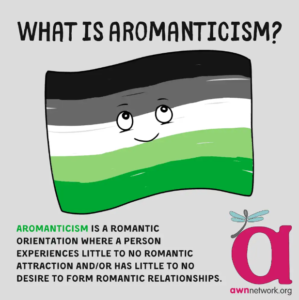How aromantic individuals are redefining love and identity in a society built on romantic expectations.
SINGAPORE: For many in Singapore, the traditional life path involves finding a romantic partner, marrying, purchasing a Build-to-Order (BTO) flat, and possibly starting a family. But for those on the aromantic spectrum, this narrative doesn’t apply. Aromantic individuals, such as Tabitha*, are reshaping how love is perceived in a society built around romantic ideals.
Tabitha, a 21-year-old nurse, recalls how in secondary school, she would pretend to have crushes, just to fit in. “I wanted to try and fit in,” she admits. “Everyone was having crushes and talking about relationships, so I just needed to have an answer when asked.” But as time went on, she realized that the emotions associated with romance weren’t something she could relate to. Now, after identifying as aromantic for the past four years, she understands that she feels little to no romantic attraction to others.
Aromanticism exists along a spectrum. Some aromantic individuals experience no romantic attraction, while others might feel it less intensely or only after forming a strong emotional connection. This identity clashes with Singapore’s pervasive narrative of romance as the foundation for a fulfilling life—marriage, children, and a house to call home. But what about those who don’t experience romantic attraction in the same way?
Aromantic individuals often find themselves questioning societal expectations, especially when national campaigns like those urging citizens to have more children come into play. In Prime Minister Lee Hsien Loong’s recent address, the push for more babies during the dragon year didn’t resonate with aros who have little to no interest in romantic partnerships.
A Growing Community
Aces Going Places, a local community for aromantic and asexual individuals, has around 200 members, many of whom share their experiences through the Discord server. Globally, aros make up about 1% of the population, according to UC Santa Barbara’s Resource Centre for Gender & Sexual Diversity. However, due to the lack of awareness surrounding aromanticism, many individuals have faced confusion about their identity. Tabitha, for instance, struggled to label herself as aromantic in her younger years, as she thought she might just be a late bloomer.
Megan Tan, a 27-year-old admin assistant, experienced similar frustration when people dismissed her feelings, saying, “You’ll be interested later.” She, like many others, has had to face doubts about her own identity, often feeling pressured to conform to societal norms. “It’s exhausting to keep explaining myself,” she says, recalling how people consistently tried to push her into dating, assuming she’d eventually change her mind.
Love Beyond Romance
With romance off the table, how do aros experience love? For many, love isn’t limited to romantic relationships. Tabitha, for example, shows love through actions: listening to friends, sending thoughtful gifts, and supporting causes that matter to her. “Love is something that is most meaningful when expressed, not just felt,” she says, emphasizing the many ways love can be shown to friends and family.
James R, 30, views friendships and romantic relationships equally, believing that the love he shares with his friends is just as significant as romantic love. Athena Lim, 21, agrees, noting that living without romantic relationships feels like a choice rather than a loss. “I don’t feel like I’m giving up anything at all,” she says, laughing.
For many aros, there is no hierarchy of relationships. Tabitha highlights how society tends to prioritize romantic relationships, assuming that a husband or wife takes precedence over other connections. “Why should relationships always have a hierarchy?” she asks, pointing out that friendships can be just as meaningful, if not more so, in one’s life.
Facing Amatonormativity
Amatonormativity, the assumption that romantic relationships are the ultimate form of happiness and fulfillment, is a pervasive challenge for aros. In Singapore, where systems like BTO eligibility and tax rebates are structured around family units, singles often face societal pressures to partner up. Aros, like everyone else, are expected to follow the traditional life path, yet they are often overlooked or misunderstood.
“It’s frustrating,” says Athena. “People assume that if you don’t want a partner, you’re lonely or incomplete.” In a society that places so much emphasis on pairing up, aros must navigate their lives while constantly defending their right to love and live on their own terms.
James expresses frustration with the assumption that aros are inexperienced or innocent. “People think that because we don’t experience romantic attraction, we’re somehow naïve or childlike,” he says. “That’s not true, and it’s demeaning.”
Aros in the LGBTQ+ Space
Aromantic individuals also face challenges within the broader LGBTQ+ community. “Some people don’t even consider aros part of the LGBTQ+ community,” Athena points out. This exclusion is due to the idea that aros are ‘straight-passing’ and don’t face the same discrimination as others in the community. There’s also a lack of representation in media for aros—while LGBTQ+ couples are often depicted in films and TV shows, aros don’t have the same visibility, making it harder for them to feel represented.
Living Outside the “Norm”
Aros like Wayn L, 24, are creating fulfilling lives outside the bounds of romantic expectations. As a freelance artist, Wayn dreams of living comfortably on his art in a spacious home that can accommodate his creative pursuits and his love for animals. He sees life without romantic pressure as freeing, saying, “There’s no expectation to end up in a relationship. I can just enjoy my time with my pets and my work.”
For James, happiness comes from being surrounded by a supportive community. “It’s about finding your people and places that make you feel loved,” he says. He actively participates in Aces Going Places, where he connects with others who understand his experiences.
Validating Aromantic Lives
Aros’ experiences are diverse and unique, and it’s important for them to embrace their identity without shame. James encourages other aros to reject the idea of “normal” and embrace their experiences. “You are not broken. Your experiences are real. You exist. You are valid.”








